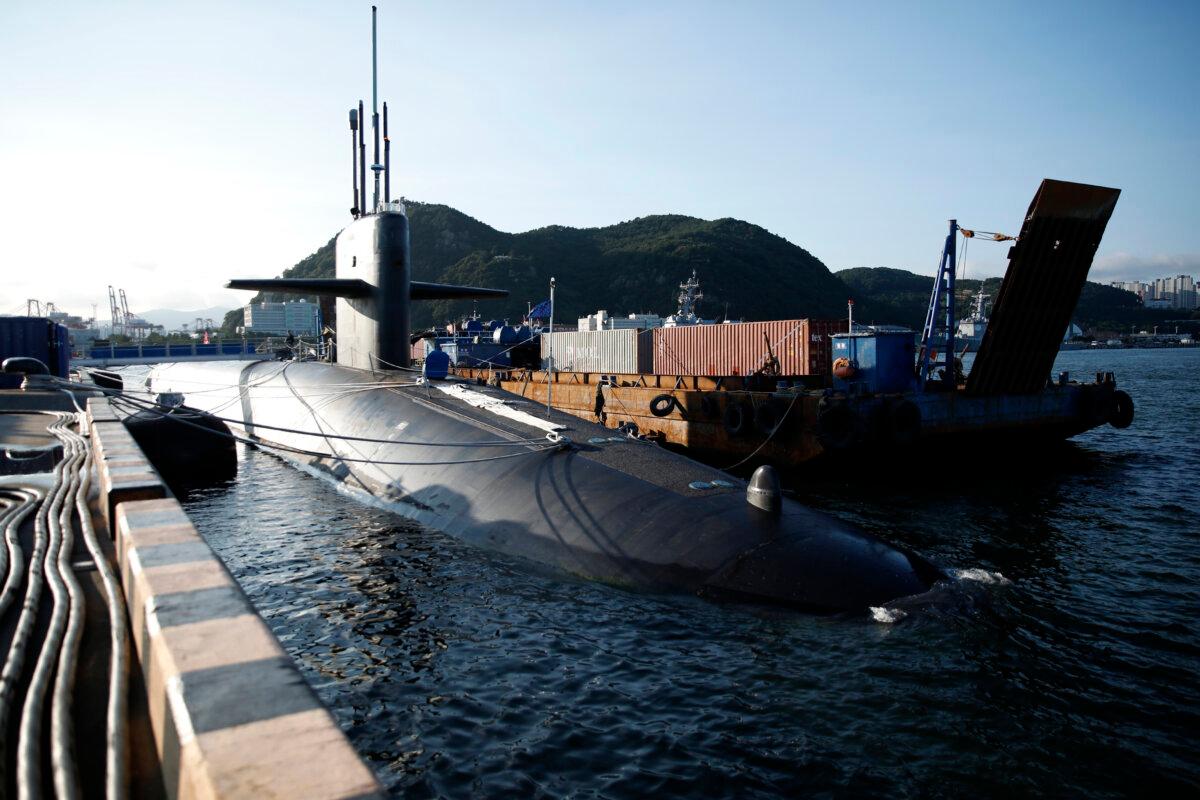Commentary
Japan has expressed interest in joining AUKUS—the trilateral defense pact between Australia, the United Kingdom, and the United States—since its inception. This is not typically in the Japanese nature, but it seems that the Americans are pushing for Japan’s inclusion, albeit not as a full member.
An Australian acquaintance recently inquired about this matter.
Question: What are your thoughts on the anticipated announcement of Japan joining the AUKUS military technology-sharing alliance alongside Australia, the United States, and the UK?
Answer: It’s a positive development and a logical progression for AUKUS. The forthcoming “announcement” will surely be celebrated. This type of scenario is what certain U.S. officials excel at—the post-meeting press release.
The real test lies in how the involved parties utilize Japan’s involvement in AUKUS.
Why is Japanese involvement a logical step? AUKUS has always had two components: nuclear submarines and broader technology sharing among the three nations. The latter aspect often gets overshadowed by the submarine element of the AUKUS agreement.
Japan can offer significant contributions in areas like space and missile technologies, anti-submarine and undersea surveillance technologies, hypersonics, submarine technology, and advanced manufacturing capabilities.
Furthermore, Japan has substantial financial resources to invest in these endeavors, unlike the British and Australians who may face limitations in defense spending. Even the Americans claim to have budget constraints when it comes to defense.
To ensure successful collaboration, the Americans, British, and Australians should identify specific areas where they seek Japanese assistance and communicate these needs clearly. Japanese officials are not mind readers; providing concrete objectives helps them align their efforts effectively, rather than leaving them to speculate on foreign interests.
If Japan is to be included in AUKUS in some capacity—such as an associate member—the other three nations should present specific requests instead of convening an introductory meeting where each side ponders, “What should we do?”
How significant are Japan’s deficiencies in classified information protocols?
While Japan’s shortcomings in this area pose challenges, they can be managed by compartmentalizing projects and enforcing strict rules and procedures for information handling and access. The Japanese understand the importance of confidentiality and have mechanisms in place to maintain secrecy when necessary. It’s worth noting that AUKUS countries have also faced difficulties in safeguarding their information despite robust security clearance protocols over the years.
Regarding AUKUS, it’s ironic that Japan can contribute substantially to the submarine technology aspect. It remains to be seen how Japan will respond if asked.
Presumably, the Japanese will not remind the Australians that if they had opted for Japanese submarines in 2016, they would already possess them. While not nuclear-powered, Japanese submarines are still valuable assets. As it stands, Australia’s acquisition of nuclear submarines will be a lengthy process.

Whoever obstructed the Soryu (Japanese) submarine deal on the Australian side deserves reprimand and perhaps a “Friend of China” commendation from Beijing.
Does Japan’s non-full membership in AUKUS matter? It shouldn’t. Given China’s looming presence, it is imperative to facilitate Japan’s involvement in AUKUS in some form. After all, Japan is a prominent democracy, a technological powerhouse, and possesses a respectable military in certain aspects.
Question: Japanese Prime Minister Fumio Kishida is enhancing defense spending and discussing a “multilayered” alliance structure. Is Japan truly shedding its post-World War II pacifist stance and emerging as a significant defense player?
I believe Japan began moving away from its post-World War II pacifist stance around 1960 or earlier. Japanese pacifism has always been peculiar: Build a substantial military under the guise of a “self-defense force” and secure a deal with the U.S. where America pledges to defend Japan without reciprocal commitments. It’s a clever maneuver that Japan managed for a long time.
Those days are largely behind us, despite some in Japan’s leadership pretending otherwise. Thankfully, others in Japan recognized the charade and took steps to prepare the country for self-defense.
Japan possesses a capable military, particularly in specialized areas such as submarine warfare, anti-submarine warfare, naval operations, missile defense, and space activities. However, challenges persist, including inefficiencies in joint operations within the Japan Self-Defense Force and difficulties in expanding due to recruitment issues. The Maritime Self-Defense Force and the Air Self-Defense Force need immediate doubling in size to address these shortcomings.
The size of the Ground Self-Defense Force (GSDF) is adequate. Japan has the potential to become a significant defense player by addressing JSDF weaknesses and leveraging its strengths. By improving its defense capabilities and strengthening its ties with the United States, Japan can deter adversaries like China, North Korea, and Russia. Exporting defense technology and hardware will be crucial for Japan to establish itself as a key player in the international defense market. While some Japanese conservatives advocate for self-reliance in defense, the reality is that Japan still heavily relies on the United States for security. The late former Prime Minister Shinzo Abe understood the importance of U.S. protection, and his successors continue to recognize the value of the alliance. In terms of Australia’s defense policy, there seems to be uncertainty surrounding the government’s approach. The Australian Defense Force (ADF) remains committed to regional security efforts, but clarity on national defense strategy is essential. Until Australia solidifies its defense stance, the ADF can only do so much. Overall, collaboration with the United States and strategic decision-making are critical for both Japan and Australia to enhance their defense capabilities and safeguard regional interests. Please rewrite the following sentence:
“The cat is sleeping on the windowsill.”
“The feline is resting on the windowsill.”
Source link








